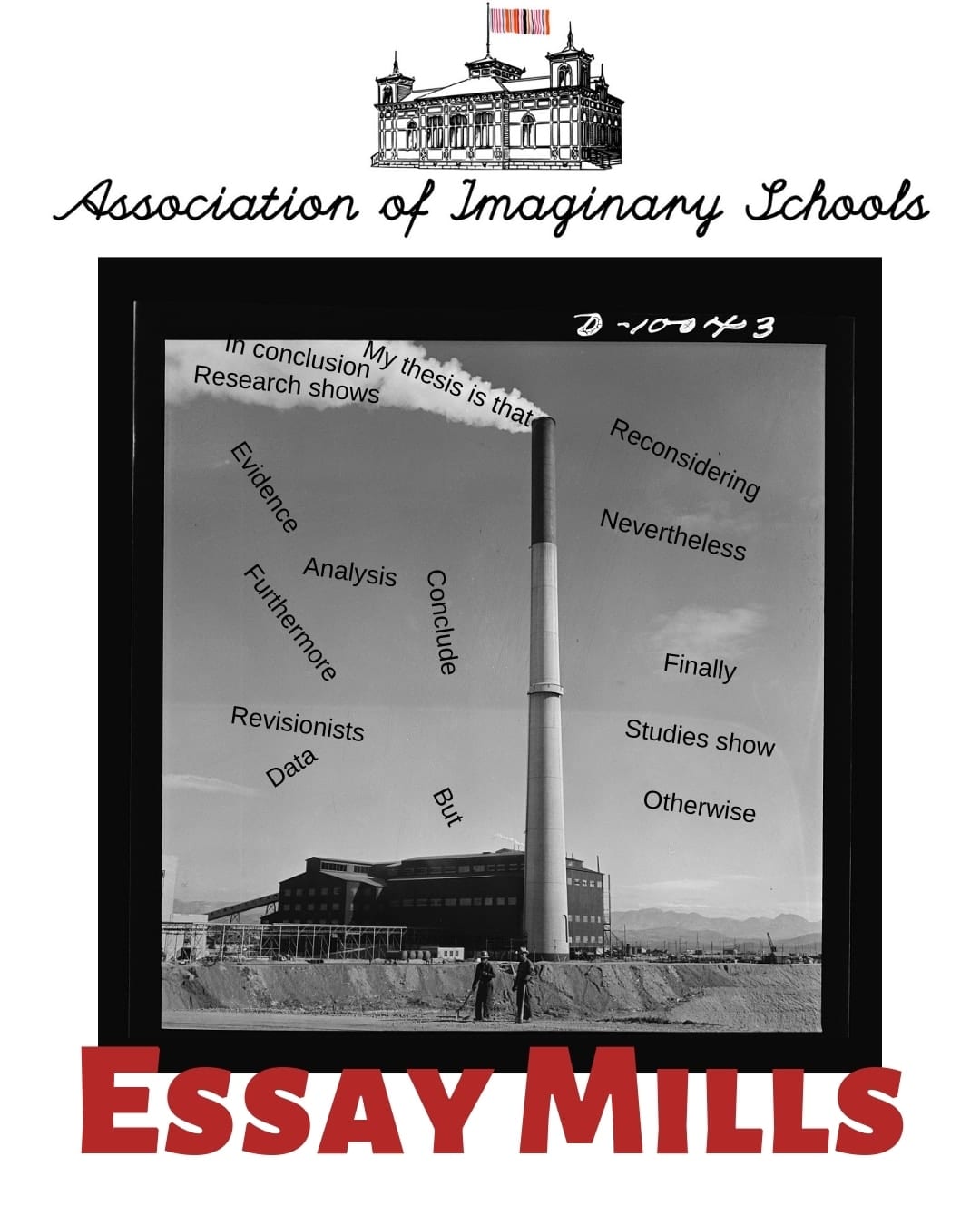A recent NPR story “How Students May Be Cheating Their Way Through College” highlights the big business of academic essays for sale to students.
We all know an Aunt Becky who is eager to purchase her child’s education. If we admit students we know can’t do the work, and overload the students who can, a black market for homework is inevitable.
The larger problem for the members of the Association of Imaginary Schools may be unrest among the students and professors who toil in the essay mills at low wages. A recent AIS study shows that more than 20% of essay mill writers would consider unionizing if a union were to form.
Protests by faculty and graduate students at Fred’s University last month bear this out. The protesters claimed that they were paying off their student loans for the education they could not afford in order to provide an imaginary education for students who could pay to avoid their own.
One professor described getting a commission to write an essay for his own class by one of his students. Given his precarious financial situation, the professor opted to write the paper, but then gave the student a D on the essay. As per Association Policy to deny any institutional wrongdoing, the AIS suggests that its members issue strong public statements against the practice of essay mills and refute the idea that academia is just a simulacrum.
On a more practical level, however, work in essay mills can be a source of extra income for underpaid faculty and graduate student teachers and should be considered as an excellent outside revenue source as benefits at most member schools are cut in the coming year.

